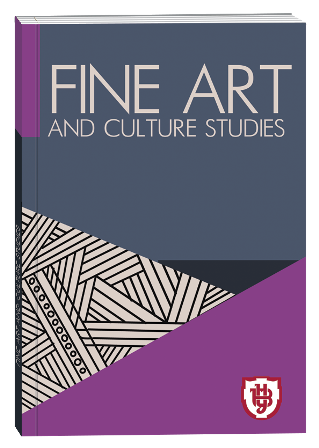CULTURAL AND COGNITIVE ASPECT OF UKRAINIAN AUTHORRITY
DOI:
https://doi.org/10.32782/facs-2025-4-52Keywords:
power; culturology; cognitive aspect; musical culture; symbols; rituals; cultural memoryAbstract
Purpose. The article focuses on the study of power in the cultural and cognitive dimension, with special emphasis on the relationship between power and musical art. The main objective is to demonstrate how power functions not only as a political institution but also as a cultural phenomenon that produces symbols, memory codes, rituals, and meaning- making frameworks for society.Methodology. The research is based on an interdisciplinary approach combining cultural, historical-philosophical, socio-communicative, and musicological analysis. Theoretical contributions of M. Foucault, H. Arendt, J. Habermas, J. Assmann, as well as Ukrainian thinkers (H. Skovoroda, M. Drahomanov, M. Khvylovy) are employed. Particular attention is given to musical culture as an instrument of legitimizing power and a medium of cultural communication.Scientific novelty. For the first time, power in the Ukrainian context is interpreted as a cognitive resource manifested in the sphere of musical culture. It is shown that anthems, folk songs, academic ensembles, mass festivals, and contemporary frontline compositions shape the image of power not only in political but also in cultural-symbolic terms. The dialectical nature of these processes is revealed: power generates official images, while culture produces alternative ones.Conclusions. Power in the cultural dimension is a multidimensional phenomenon realized through rituals, symbols, myths, and musical memory. In the Ukrainian case it gains particular significance due to postcolonial legacy, Soviet experience, and the current war. Musical culture emerges as a crucial channel of communication between power and society, ensuring consolidation, identity formation, and cultural diplomacy. Future research may focus on the interaction of power with other artistic domains and with contemporary cultural industries.
References
Антонович Д. Українська культура: Коротка історія культурного життя українського народу. Київ: Либідь. 1991.
Білодід І. Влада та культура: український контекст. Київ: Інститут культурології НАН України. 2007.
Гнатюк О. Прощання з імперією: культурні сценарії української ідентичності. Київ: Критика. 2015.
Зінченко В. Влада і культура: діалектика впливів. Сучасність. 2010. Вип. 6. С. 45–58.
Кияновська Л. Музична культура в Україні XX століття. Львів: Сполом. 2002.
Лисенко І. Культурна політика і музичне життя незалежної України. Наукові записки Інституту мистецтвознавства, фольклористики та етнології. 2012. Вип. 18. С. 23–37.
Сюта Б. Влада, музика і суспільство: досвід українських трансформацій. Культурологічний вісник. 2019. Вип. 33. С. 67–79.
Arendt H. On Violence. New York: Harcourt. 1970.
Assmann J. Cultural Memory and Early Civilization: Writing, Remembrance, and Political Imagination. Cambridge: Cambridge University Press. 2011.
Foucault M. Discipline and Punish: The Birth of the Prison. London: Penguin. 1991.
Habermas J. The Structural Transformation of the Public Sphere: An Inquiry into a Category of Bourgeois Society. Cambridge: MIT Press. 1991.
Huntington S. The Clash of Civilizations and the Remaking of World Order. New York: Simon & Schuster. 1996.
Small C. Musicking: The Meanings of Performing and Listening. Hanover: Wesleyan University Press. 1998.
Taruskin R. The Oxford History of Western Music: Music in the Nineteenth Century. Oxford: Oxford University Press. 2005.








